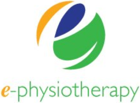Gastric Reflux, often abbreviated as GERD/GORD (Gastroesophageal Reflux Disease), is a common condition that can be symptom free or you may have regurgitation, a feeling of heart-burn, chest pain, difficulty swallowing or feeling very full and bloated after eating. This may or may not be associated with a hiatus hernia, where part of the stomach moves up into the thorax where the lungs are. Having a hiatus increases the chances you will have gastric reflux. The diagnosis of this would be done through your general practitioner and imaging tests. You will often be prescribed medication to reduce the acidity in your stomach such as H2 blocers, protein pump inhibitors (PPI) or antacids, which helps to reduce the burning in your oesophagus.
Physiotherapy can help with GERD/GORD. This involves lifestyle advice to help lose weight, as this is a risk factor for gasstric reflux. Breathing exercises to strengthen your diaphragm can help to reduce reflux as the diaphragm works with the lower oesophageal sphincter (LES) to reduce reflux. Visceral manipulation can also help to reduce reflux. This involves manual therapy in the abdomen and to the diaphragm to help reduce restriction and increase blood flow for better digestive function. By releasing tension in the diaphragm and stomach, it may be possible to partly reduce a hiatus hernia and hence reduce reflux.


Leave A Comment